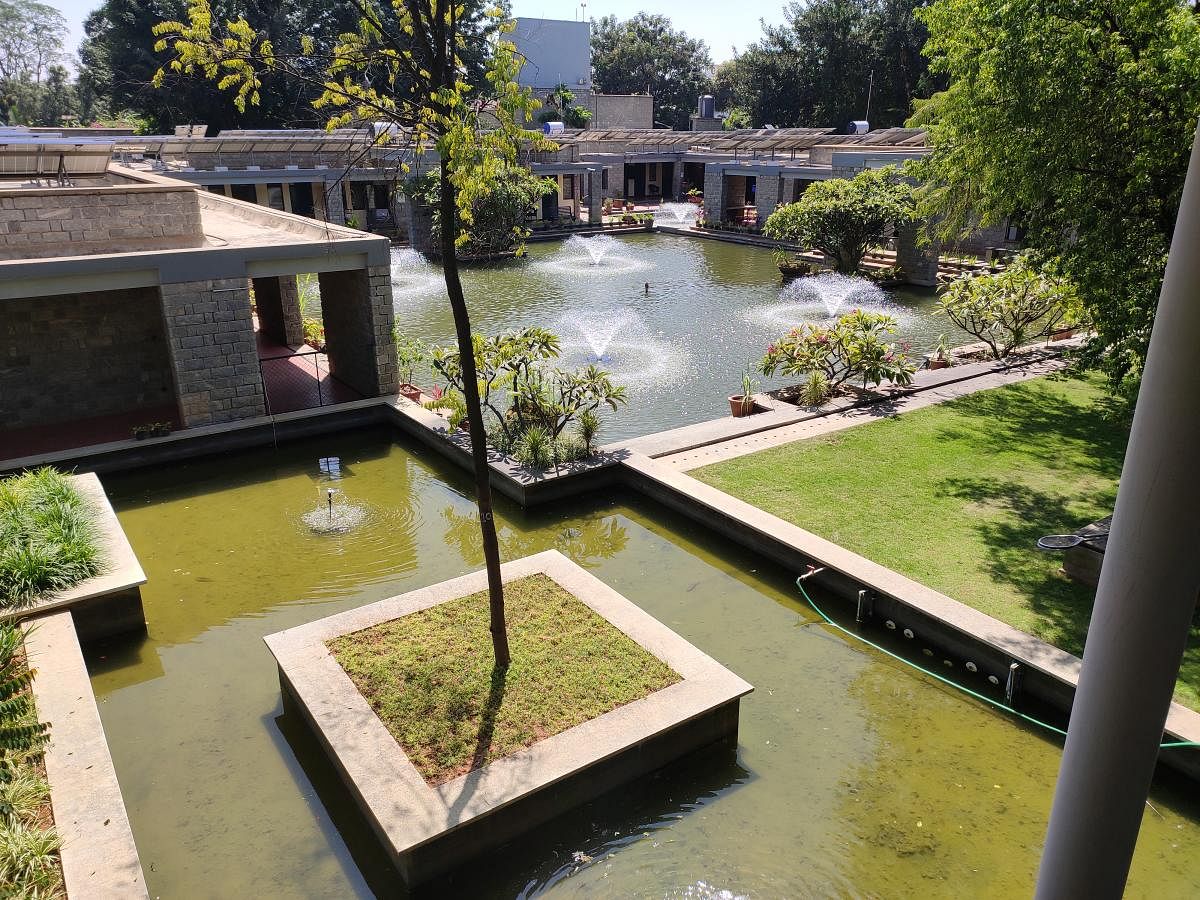
The stone exterior of Bangalore Hospice Trust (BHT) speaks of timelessness; located in the middle of the densely populated Varthur Main Road, it is surrounded by lush greenery.
BHT runs Karunashraya (‘abode of compassion’), a centre for free palliative care of advanced and terminally ill cancer patients. It is now celebrating its 25th year. To date, Karunashraya has welcomed about 24,000 patients and their families on its premises.
Karunashraya was founded on October 26, 1994, as a joint project of the Indian Cancer Society (Karnataka chapter) and the Rotary Club of Bangalore, Indiranagar. On a visit to Karunashraya, Metrolife spoke to Gurmeet Singh Randhawa, managing trustee, Bangalore Hospice Trust.
“The first activity that we took up was homecare; we hired an auto with a counsellor and a nurse, and with the help of doctors, we visited the homes of people who had advanced and terminal cancer. After some years, we got five acres on lease from the Karnataka government—that is the place where Karunashraya stands tall today,” he says.
The trust provides home care services by three teams, one team operating out of Karunashraya and the other two from link centres in Jayanagar and Kalyan Nagar.
Staff strength
Today, the centre has six doctors, four counsellors, and a big team of physiotherapists and nurses. It has 75 beds and annually admits 1,600 patients.
The average stay of a patient is about 15 to 20 days. Some survive here for months and some might die within a week. “It all depends on at which stage their doctors have said that no further treatment is available. That’s the stage when they come here.”
“Whatever services we provide, including home care and in-patient care, are free. Cancer is a disease that not only affects the patients but their families too. Patients are referred to us by hospitals like Kidwai Memorial Institute of Oncology. A big chunk also comes to us by word-of-mouth,” Gurmeet says.
Patients can go back home once they are better, or stay on at Karunashraya, and families are allowed to visit whenever they can.
Fundraising a challenge
Tata Trusts, based in Mumbai, has been supporting the organisation since its inception. The Rotary Foundation donated Rs 65 lakh (under what was called Health, Hunger and Humanity grant) to equip the building.
Karunashraya now gets CSR funding, and also grants from the HANS Foundation based in Delhi.
“But a large chunk of money comes to us—we call it unsolicited funding—from people who have heard about us from their relations. Besides this, we have a set of regular individual donors,” says Randhawa.
Patients should know
Before bringing a patient to the hospice, it is important the family visit the centre. Patients should not come under the impression that this is a treatment centre.
“It has happened several times that patients don’t know the prognosis. There have been instances when they didn’t even know the diagnosis. The communication between doctors and patients is not adequate. Often, they don’t tell patients that no further treatment is available. Families choose to keep the patient in the dark,” explains Randhawa.
to work tirelessly at Karunashraya.
Thus, the support staff gets adequate time
to restore themselves every day.
Devoted staff
Working for a cause like this needs will and dedication; and having a team that works selflessly comes as a blessing, the trust says.
Care includes rapprochements
If the patient is not aware of the condition, it is disclosed at a gentle pace.
“The beauty of human nature is such that once we know the truth, we accept it. A lot of good things have happened because of that. There have been weddings and reconciliations because of this,” Randhawa says.
In case of misunderstandings, counsellors and nurses work closely with families to aim for rapprochements.
“In most cases, we have to look at the patient’s last few days and give them dignity and peace, rather than simply looking at them physically. This is the fundamental thing about palliative care — it is not only about physical needs, but it is also about emotional well-being,” says Randhawa.
Place to study palliative care
Palliative care is comparatively a new field, and the hospice trains and educates government doctors in it. With the objective of spreading awareness about palliative care, the trust runs a 10-day residential program for doctors and nurses from other states.
Palliative care integrates specialised medical and nursing care for people with chronic illnesses. It focuses on providing relief from the symptoms, pain, physical stress, and mental stress at any stage of illness.
For the past two years, Karunashraya has been working with Nimhans after signing an MoU. This enables it to work with them in matters of psycho-oncology.
Similarly, Karunashrya is working with Manipal Academy of Higher Education (MAHE), and has been recognised as a PhD centre. Anyone who wants to pursue a PhD in any field related to palliative care can now do it through Karunashraya.
Patients from all classes
About 70 per cent of patients at Karunashraya come from “fairly poor backgrounds.” But some from middle and upper-middle-class backgrounds are admitted as well.
Many well-to-do patients spend their last days here. Some NRIs leave their parents here. “People in the US and UK are well aware of palliative care, and so they are more accepting of the idea of leaving their parents here,” says Randhawa. Because of poor public health services, a majority with cancer go to hospital late. People in villages and slums are also checked and diagnosed late. “We have more women here than men. This is because socially, women’s health takes a backseat. Also, in cases of breast cancer and cervical cancer, women are often not forthcoming. They don’t say anything until it’s too late, and this makes it difficult,” says Randhawa.
People who are not able to afford good primary medical care are the ones who tend to succumb to cancer. The treatment is expensive; government hospitals are few, he explains.
Karunashraya can be contacted at 2847 6133.